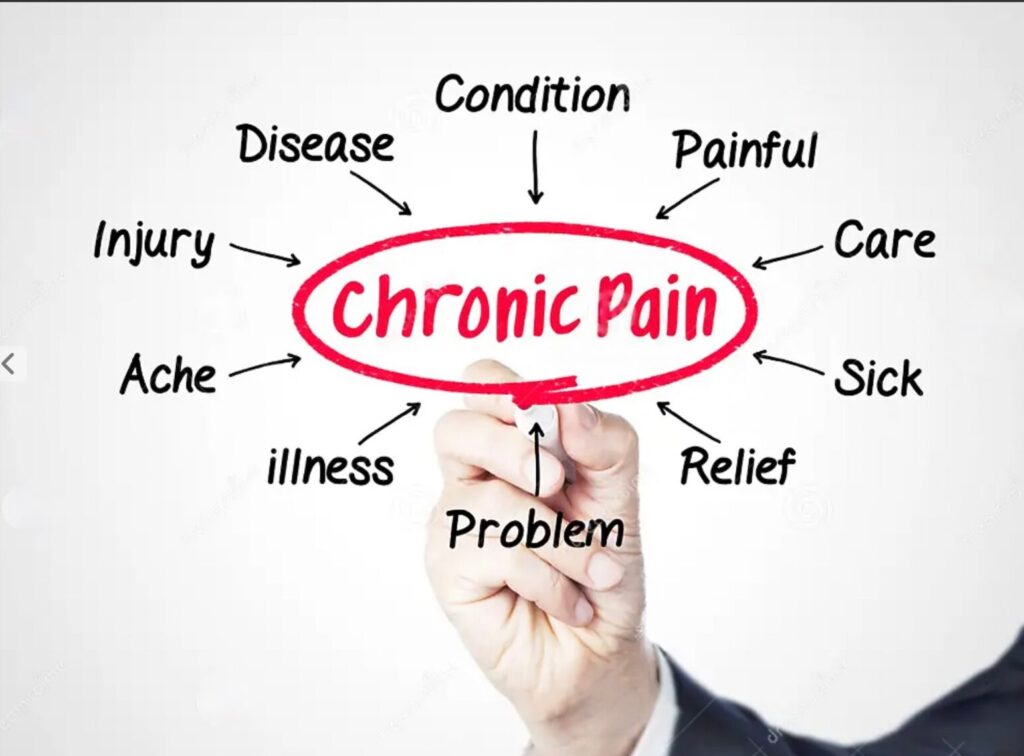The world we live in is characterized by pain and suffering. In the Christian tradition, we acknowledge that wasn’t the case from the beginning…creation was perfect. However, humankind turned from the desire to commune with God. As in the case of a branch lopped from a tree, this resulted in our metaphysical, and eventual physical, death. Pain and suffering followed.
According to a new study published in JAMA Network, entitled “Estimated Rates of Incident and Persistent Chronic Pain Among US Adults, 2019-2020”, the prevalence of adults in the US with chronic pain significantly increased over the last decade. The study, which utilized data from the 2019-2020 National Health Interview Survey that included more than 10,000 US adults, reported that chronic pain affects more than 50 million US adults. Of those, 17 million experience high-impact chronic pain (HICP). For the purpose of the study, chronic pain was defined as the experience of “pain on most days or every day during the past 3 months”, while HICP was defined as “chronic pain that limited life or work activities on most days or every day during the past 3 months”.
Throughout much of history, treatment for pain included actions that crossed the various contexts of humanity: physical, emotional, social, and spiritual. However, as noted by Dr. Haider Warraich in his book, The Song of Our Scars: The Untold Story of Pain, as society became more secularized, the understanding of pain narrowed, and the treatment became limited. “Modern medicine has also crafted a philosophy supplanting millennia of cultural norms and positioned pain as a purely physical sensation that only medical interventions can alleviate.”
We deem “pain intolerable, discomfort, an unacceptable state” in our modern world. We demand more drugs and other medical interventions. Even though Americans make up approximately five percent of the world’s population, we consume 30 percent of the world’s opioids. Ironically, opioids are ineffective in many cases of chronic pain. Warraich cited a recent review of 162 studies that “for patients with chronic pain, opioids were barely better than placebo at alleviating pain or restoring physical function and no different at improving mental well-being. And they were no better than nonopioid pain medications like acetaminophen or ibuprofen”. He explains that opioid medications are too powerful, disrupting the body’s natural pain response. Continued use can cause our bodies to produce fewer naturally occurring opioids and related chemicals.
To close out his book, Dr. Warraich sought to offer hope to those who do suffer from chronic pain. And if you think it is easy for him to counsel others on a topic he has no first-hand knowledge of, you would be incorrect. During a weightlifting session in medical school, he felt his back pop. His broken back resulted in such pain that he feared he would not be able to realize his dream of a career in medicine. He described some factors and interventions enabling him to overcome ongoing life with chronic pain.
Exercise saved his life. Referred to a physical therapist by a spine surgeon who felt that surgery might make matters worse, he overcame his dread of movement. This fear, known as kinesophobia, can cause individuals to become deconditioned, losing strength, pliability, and balance. As a result, they become more vulnerable to injury and increasingly sensitive to pain.
Dr. Warraich also noted the importance of care by others who can understand what another person is experiencing. This ability to see the world through another’s eyes is known as empathy. We hope a client experiences this when working with a mental health counselor.
The author described the choices we all face, including those suffering from chronic pain. We can choose to live a life driven by our values, or we can attempt to control the details of our lives to avoid pain and other difficulties. This choice of acceptance leads to a life dominated by personal agency, the ability to chart our course despite the storms which beset us.

